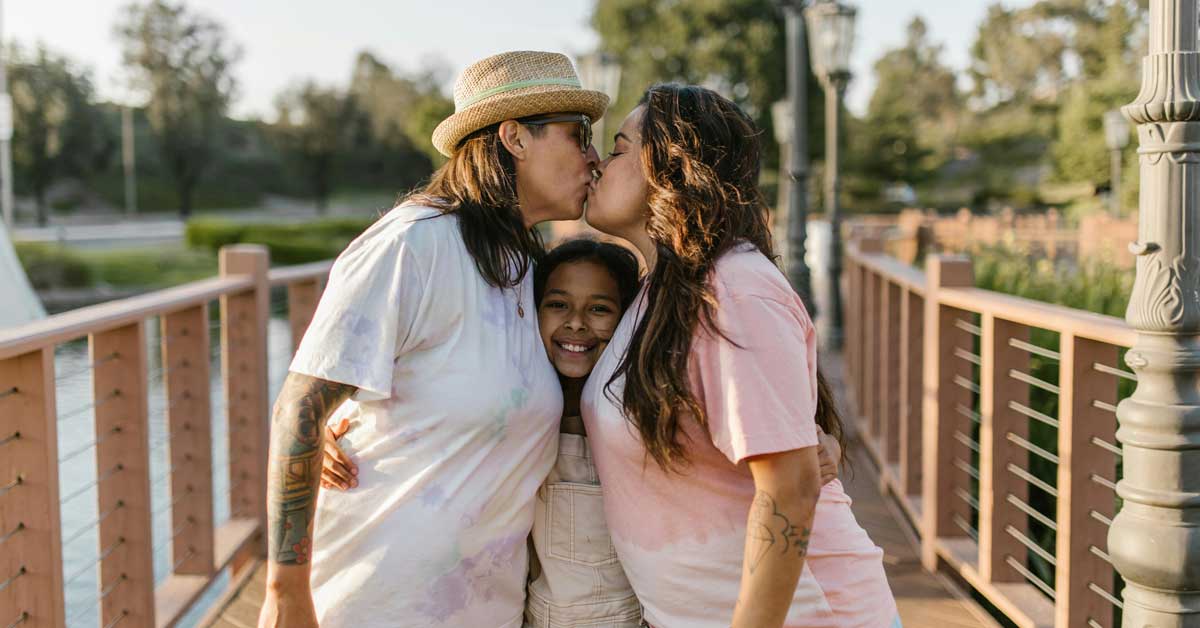Many of us have found ourselves in a position where someone we care about is having a hard time, and in turn, we have a hard time finding encouraging or supportive words beyond a measly “there, there” or “it’s going to be okay.”
It makes sense that this is a challenge; we care about the people in our lives and want to say the right thing. After all, connecting with other humans relies a lot on being able to communicate effectively.
Fortunately, new survey results from the language tutoring platform Preply might give us some helpful insights about what to say next time the people we love need some support.
Nearly half of Americans share encouraging words daily
Preply surveyed nearly 1,000 Americans (997, to be specific) about the supportive words they share and receive to get a better idea of what language has the most impact. Respondents ranged in age from 18 to 76 years old, and were 49% female, 50% male and 1% nonbinary.
The major findings are enlightening. According to this sample size, 42% of Americans share words of support with others at least daily. Additionally, many of these people exchange those positive words most with their partners and spouses.
This makes sense, considering relationship experts like those at the Gottman Institute consider “sharing fondness and admiration” to be a core tenant of a “sound relationship.”
“Sharing fondness and admiration in intentional, consistent, faithful ways is the antidote to contempt and, more importantly, it increases the amount of affection and respect in a relationship,” Zach Brittle, a licensed mental health counselor, wrote for the Gottman Institute.
These behaviors of sharing support and affection aren’t just for romantic partners — in fact, many of the encouraging words survey respondents shared can be used in many different contexts.
According to the study, respondents cited words like “love,” “trust,” and “strong,” to be some of the most powerful words in their arsenal, while phrases like “I’m proud of you,” “You’ve got this,” and “I believe in you,” rank highly, as well.
Offering support can be tricky
Of course, everyone is different, and communicating authentically — and within contexts like the workplace — can help us identify the best supportive language to uplift the people closest to us.
This is especially important, as 60% of people said that the words of support they have received felt cliche or insincere — especially phrases like “You’re an inspiration” or “you’re stronger than you think.”
Navigating all of these social norms and emotional complexities, it makes sense that Americans might find it difficult to share words of support.
“Sharing words of support can be complex due to a variety of factors like intense emotions, vulnerability, socio-cultural norms, language proficiency, and the potential for misinterpretation,” Preply language expert and Head of Methodology Sylvia Johnson said.
“The risk of miscommunication can also be a concern, as good intentions behind phrases like ‘You’ve got this’ might be misunderstood as pressure,” she continued. “It’s essential to understand these nuances and employ empathetic communication to share supportive words effectively and authentically.”
That being said, the survey found one piece of information that is nearly universal: We could all use more words of encouragement, even if they might be imperfect.
About 52% of respondents said they hear words of support weekly or less, and 40% said they hadn’t heard words of support from their parents in six months or longer.
So — what other words and phrases have the most positive impact?
Here are the best words of encouragement to share
The best words of support to hear
According to Preply’s findings, these 20 positive affirmations were clear favorites in the study.
- I’m proud of you.
- You’ve got this.
- I believe in you.
- You’re doing great.
- I’m here for you.
- You can do it.
- I’ve got your back.
- I’m here to help.
- I’m here to support you in any way I can.
- You’re amazing.
- You’re not alone.
- I’m on your side.
- I’m here to listen.
- I’ve got faith in you.
- You’re making progress.
- You’re capable of great things.
- You’re stronger than you think.
- You’re an inspiration.
- Keep going — don’t give up.
- You’re a fighter.
The best encouraging words to hear at home
While there are some phrases and words that might be evergreen across social contexts, it’s important to know what words are most appropriate between parents or partners, rather than coworkers or teammates.
These are the top 10 words of support respondents shared for their home lives.
- I love you.
- I appreciate everything you do.
- I’m proud of you.
- I’m grateful to have you in my life.
- I’m here for you, no matter what.
- You mean the world to me.
- You’re the best thing that ever happened to me.
- You bring so much joy into our lives.
- You’re a great parent.
- You’re a wonderful friend.
- Your happiness matters to me.
The best supportive phrases to hear at work
Receiving praise from a manager or coworker can be a huge self-esteem boost — especially when they are said thoughtfully. Preply found the following phrases to be the most impactful.
- Great job!
- You’re doing a fantastic job.
- Keep up the good work.
- You’re an asset to the team.
- Your effort is appreciated.
- You’re a key part of our team’s success.
- Your contributions make a difference.
- Your input is valuable.
- You’re a problem solver.
- Your dedication is impressive.
- You’re an inspiration to your colleagues.
These are the phases you should avoid
The most cliché words of encouragement
Although some encouraging words might be helpful to some people, others might find them cliché or insincere. Here are 20 phrases Preply’s respondents perceived to be hollow and unhelpful.
- You’re stronger than you think.
- You’re a fighter.
- You’ve got this.
- You’re not defined by this moment.
- You’re an inspiration.
- You’re capable of great things.
- I’m here for you.
- You’re not alone.
- Keep going, don’t give up.
- I’ve got your back.
- You can do it.
- I’m rooting for you.
- I’ve got faith in you.
- I believe in you.
- You’re amazing.
- I’m here to lend an ear.
- You’re doing great.
- I’m proud of you.
- I’m here to listen.
- I’m here to support in any way I can.



